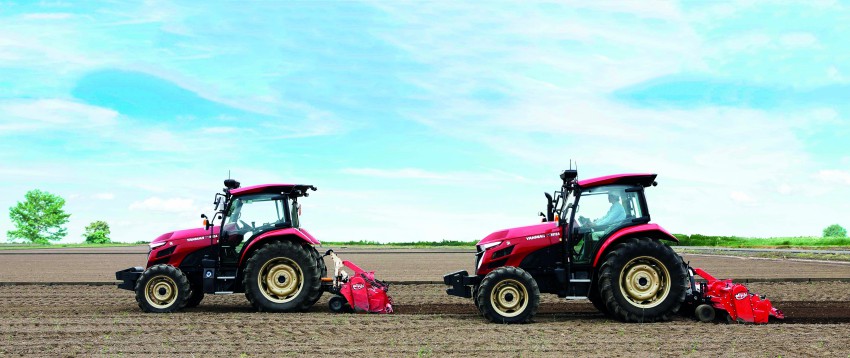“Yanmar will be playing a big role in the future of our society,” says Takehito Suzuki of Yanmar, a company that is driving technology, innovation and the big-thinking required across the entire global food value chain.

With the UN estimating the world population to balloon to 9 billion people by 2050, it projects that global food demand in turn will increase by 60% on current levels, presenting an unprecedented challenge for the agriculture industry worldwide.
Meeting such demand will require solving several issues across the food value chain, where innovation and big-thinking will be required like never before. Those challenges include efficient use of land, improving agricultural management through the adoption of new technologies, and eliminating food waste – not to mention the challenges posed by an increasingly unpredictable climate. Indeed, technology and innovation to reduce the environmental impact of the agroindustry will also be paramount.
For over 100 years, Yanmar has been supporting the development of Japanese agribusiness, and over the next century aims to draw on its rich experience to support the sustainable growth of the global food industry by offering innovative solutions across the entire food value chain.
Not only does the Yanmar supply state-of-the-art machinery, such as tractors, tillers and combine harvesters, the company also offers its farming clients solutions such as management plans on everything from soil preparation to harvesting and sales management, and the latest ICT technologies to improve productivity and farmer incomes.

Takehito Suzuki, Representative Director, Yanmar Holdings
“To avoid solely cost-based competition, Yanmar strategically decided to focus on offering solutions to customers,” says Yanmar Holdings director, Ken Okuyama.
“As such, our corporate focus centers around our ability to provide innovative products and technologies. We’ve decided to work hand-in-hand with our customers in order to understand what they need, and how they need it.”
Some of the latest technologies that have been developed by Yanmar include: autonomous machinery and robotic tractors, particularly pertinent in Japan as a means to address the challenges of a shrinking workforce; adoption of IoT and Big Data technology, which has enabled deeper understanding of customer metrics; and the use of drones to monitor soil and crop conditions.
“Thanks to these technologies, our customers are better able to manage their land, minimize their costs and save on resources. By combining different hardware, data analysis and these new services, Yanmar can provide solutions in a more focused way. That is something we hope to continue developing for our customers,” says Takehito Suzuki, Representative Director of Yanmar Holdings Co., Ltd.
As it looks to play its part in addressing global food security, Yanmar envisions its technologies, solutions and data analysis helping farmers across the world to manage their land and crops more efficiently to produce better yields.

Ken Okuyama, Director, Yanmar Holdings
“For example, currently we are globally promoting the implementation of Yanmar’s core agricultural ICT technology: SMARTASSISTRemote,” adds Mr. Suzuki. “In addition, we have launched our global tractor in Southeast Asia this year with rollout to Europe scheduled for the near future.”
Coming from a land with a paucity of natural resources, making the most out of the minimum of resources has long been a part of Yanmar’s DNA, and its highly efficient, low emission engines have won plaudits all over the world. Its Tier 4-compliant diesel engines for industrial use were the first engines to be certified by CARB (California Air Resources Board) and by U.S. EPA Tier 4. “We are seeing orders for our engines increase globally, as some companies struggle to achieve the emission levels required by regulation,” adds Mr. Okuyama.
Yanmar is also working to realize a more sustainable society by developing bio-gas energy. Nearly 70 water treatment plants in Japan utilize Yanmar’s biogas facilities to generate efficient power from waste; while its researchers are also investigating the potential of biogas generation from rice husks – something to which the company is devoting significant effort.
As Mr. Suzuki points out: “This is the kind of resource recycling world that we want to realize. There are few companies that have both an expertise in agricultural machinery and generators. So, we think this gives us a significant edge in the market.”
Expanding efficient, productive and waste-free agriculture to ensure future global food security, while also significantly mitigating the impact of those activities on the environment is one of the most monumental challenges the world faces over the coming decades. But thanks to ambitious companies like Yanmar striving to drive the technology, innovation and the newthinking required, it is a challenge that looks ever more surmountable.
0 COMMENTS